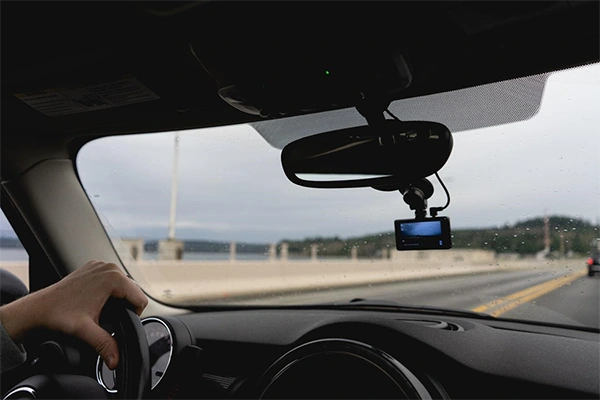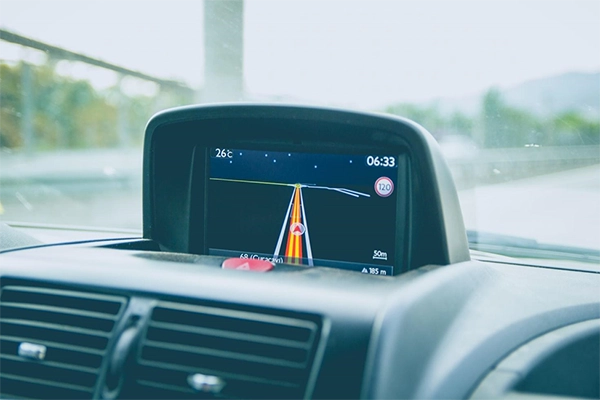In the competitive landscape of fleet management, ensuring the security and efficiency of operations is a top priority. With numerous vehicles navigating the roads daily, protecting assets, monitoring driver behavior, and preventing incidents present significant challenges. Dash cams have become an effective tool in addressing these issues, offering solutions that bolster fleet security and improve operational performance.

Installing dash cams in fleet vehicles allows for real-time observation of driver actions. Continuous recording of the road and driver activities provides fleet managers with insights into driving patterns, such as speed, compliance with traffic laws, and instances of aggressive driving. A fleet dash cam with GPS integration enhances this capability by offering precise location data alongside video footage. This combination enables detailed analysis of each trip, helping managers identify areas where drivers may require additional training or support. For example, if a driver frequently makes abrupt stops or sharp turns, it may indicate the need for better route planning or addressing driver fatigue. By maintaining a clear record of driver performance, companies can encourage safer driving habits, decrease the likelihood of accidents, and improve overall fleet safety.
Accidents and disputes are unavoidable in fleet operations. When incidents occur, having clear and unbiased evidence is essential for resolving conflicts and determining responsibility. Dash cams serve as a reliable source of video evidence that accurately captures the sequence of events leading up to and during an incident. This is invaluable for insurance claims, legal disputes, and internal investigations. For instance, in the event of a collision, dash cam footage can reveal whether a driver was at fault or if external factors, such as another vehicle’s negligence, were responsible. This documentation helps in swiftly processing insurance claims, reducing the time and costs associated with disputes. Without such evidence, companies may struggle to prove their case, potentially leading to increased expenses and damaged reputations. Dash cams ensure that all parties have access to factual information, facilitating fair and efficient resolution of incidents.

Vehicle theft and cargo loss are major concerns for fleet operators. Dash cams contribute to theft prevention by acting as a deterrent to potential thieves. The presence of visible cameras can discourage unauthorized access and reduce the likelihood of theft. Also, dash cams can be equipped with smart locker systems and motion detection features that activate recording when unusual activity is detected around the vehicle, providing real-time alerts to fleet managers. In the unfortunate event that a vehicle or its contents are stolen, dash cam footage can be instrumental in identifying the perpetrators and recovering stolen property. The recorded video offers critical information that law enforcement can use to track down thieves and retrieve assets. Some dashcams include real-time alerts and tracking features, allowing fleet managers to respond quickly to suspicious activities and enhance the overall security of their fleet.
Beyond security, dashcams play a significant role in optimizing fleet operations. By analyzing recorded footage, fleet managers can identify inefficiencies in routing, loading, and unloading processes. This data-driven approach enables the optimization of routes to reduce fuel consumption, minimize travel time, and improve delivery schedules. For example, footage may reveal that certain routes consistently experience heavy traffic or frequent stops, allowing managers to adjust schedules or select alternative paths to enhance efficiency. Understanding how drivers interact with their vehicles can lead to better maintenance practices and extended vehicle lifespans. Dash cams integrated with GPS trackers can highlight issues such as harsh braking, rapid acceleration, or other behaviors that may contribute to excessive wear and tear on vehicles. By addressing these issues proactively, fleet managers can reduce maintenance costs and prevent unexpected vehicle breakdowns. Dash cam data can support compliance with regulatory requirements by providing evidence of adherence to driving hours and safety standards. This comprehensive insight into fleet operations enables managers to make informed decisions that enhance operational efficiency, reduce costs, and improve service quality.
Dash cams have become a valuable tool in fleet management, offering multiple benefits that enhance security and operational efficiency. From monitoring driver behavior and providing essential evidence during incidents to preventing theft and optimizing fleet operations, dashcams address a wide range of challenges faced by fleet operators. The integration of features such as GPS systems into fleet management further amplifies their effectiveness, providing comprehensive solutions that protect assets and promote safer, more efficient driving practices. By fostering accountability and transparency, dashcams contribute to a culture of responsibility and trust within the fleet. As fleet management continues to evolve, dashcams will remain a key component in ensuring the security and success of fleet operations. Investing in high-quality dashcam systems is a strategic decision that can lead to significant improvements in safety, cost savings, and overall operational excellence.
